Artificial eggs and smart shopping beacons: Ten Silicon Valley startups that could change your life
We've been hunting down the startups that are beavering away on the next generation of ideas, hoping to become the next Facebook or Twitter.
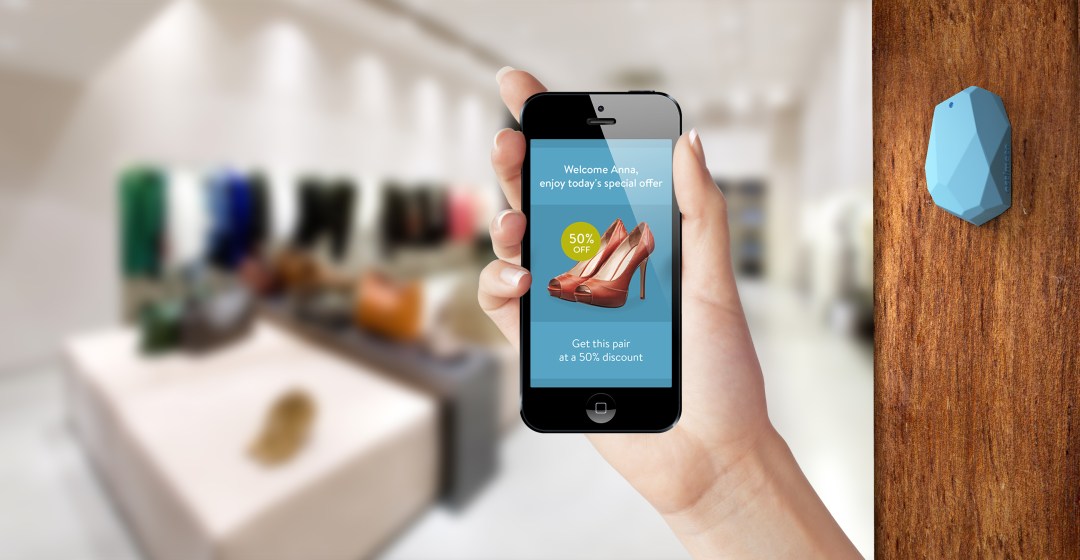
Twitter, Facebook and Google have shown that in Silicon Valley, a world-changing idea can start with just a few people in a garage.
Across the Valley, the next generation of Mark Zuckerbergs are hard at work, polishing their ideas before unleashing them on an unsuspecting public. We’ve tracked down some of the most interesting for you, and found they really could change everything – from the how you shop, to what you eat.
Lyft – Taxis with added facial hair

Visitors to San Francisco can’t help but have noticed an odd addition to the city traffic in recent months – cars sporting giant pink moustaches.
They are Lyfts, a kind of crowdsourced cab service that lets anyone (once they’ve been vetted) join up as a driver or use the firm’s brilliant app (available on iOS and Android) to find a ride. You can pay with a single click once you’re done, and rank your driver (although you might want to be generous: drivers can also rank their passengers).
It’s the future of taxis, many believe – and it’s certainly more fun. Lyft lets drivers customise their cars – if you’re in San Francisco or Los Angeles, watch out for the Disco Lyft, complete with LEDs, TVs, surround sound and mirrorballs.
Lyft has also created its own culture: passengers and drivers have a sense of community and belonging you just don’t get with a ‘normal’ cab.
However, there are some rather unusual customs to be aware of. For example, don’t be scared when you get in for the first time and the driver fistbumps you, for instance – it’s a Lyft tradition.
Lyft has aggressive expansion plans, so watch out for it in a city near you soon (assuming the obvious rules and regulations can be sorted out). Co-founder Logan Green told Stuff that he’d love to expand internationally, and launching in London is one of the firm’s long term goals. [Lyft]
Hampton Creek Foods – The End For Chicken And Egg Jokes?
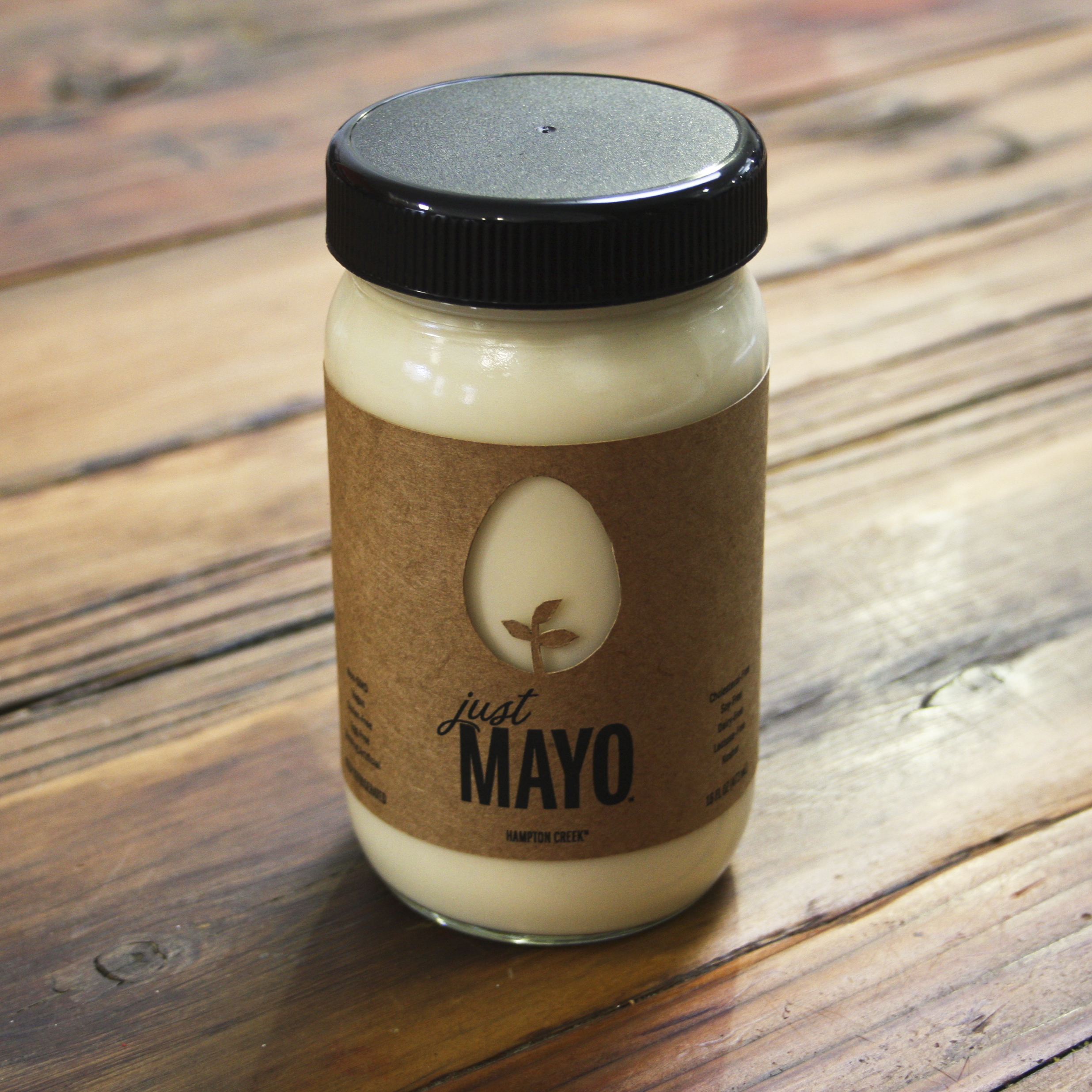
Silicon Valley is no longer restricted to just technology – and Hampton Creek Foods is revolutionising what we eat.
The firm has used a secret mix of plants to create an artificial egg that is far cheaper and easier to produce than the real thing.
Backed by Paypal billionaire Peter Thiel’s Founders Fund and Bill Gates, it is already selling its artificial mayo product in Whole Foods stores in the US – and says it will be coming to the UK next year. In typical San Francisco fashion, the firm has lofty goals. “Our food system is broken, and in the past, society has decided to abandon horse-drawn carriages for cars and land lines in Africa for mobile phones,” Josh Tetrick, Hampton Creek’s Founder and CEO told us.
“It’s time that we harness the intersection of technology and culinary expertise to leap over the chicken cages and carbon pollution, and into a food system that is better for everyone. It starts with mayo, but it certainly won’t end there.” [Hampton Creek Foods]
Smart Shopping With Bluetooth Beacons
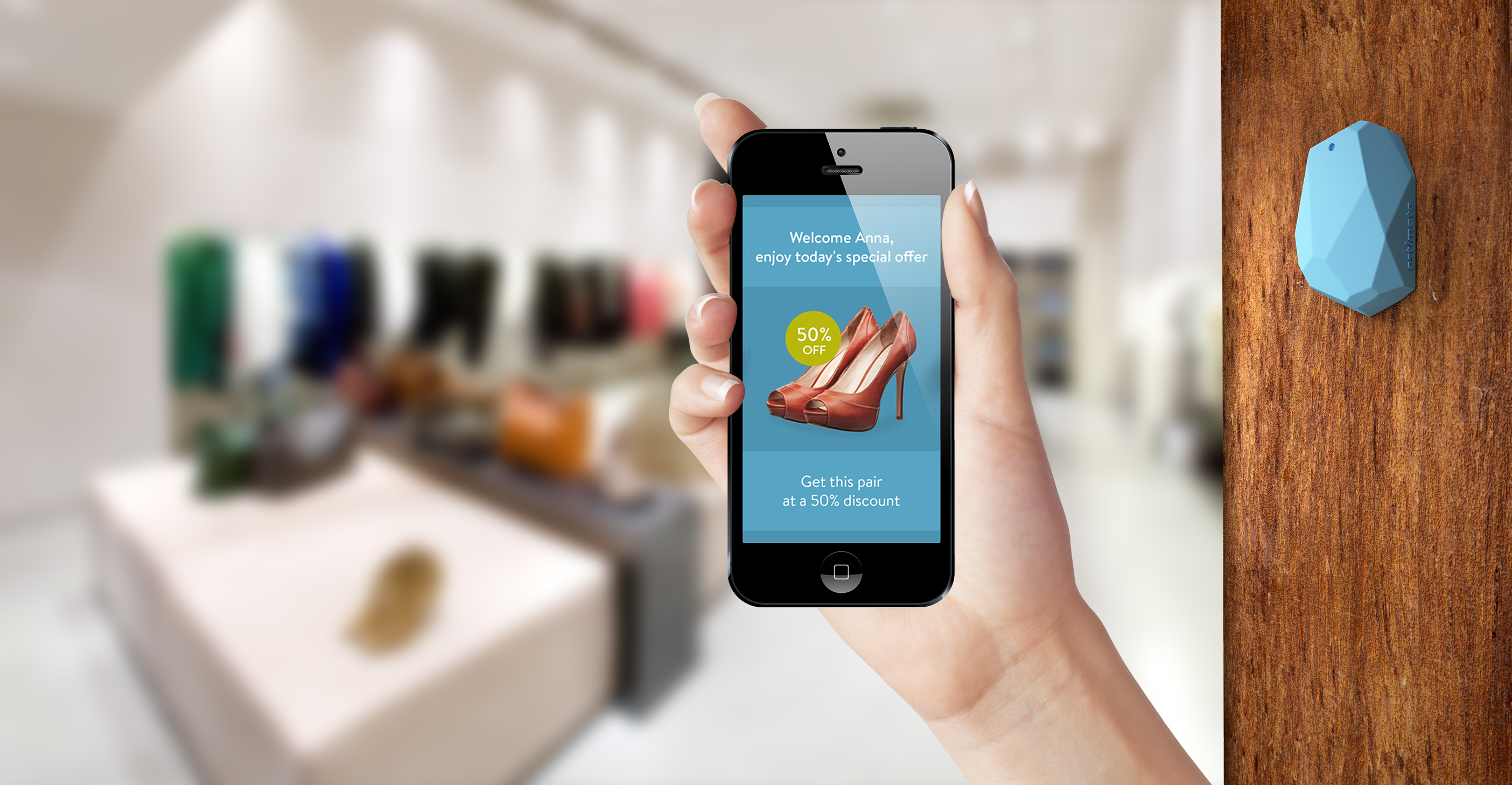
Get ready for going to the shops to get a lot more hi-tech.
Estimote, based in Mountain View in the heart of Silicon Valley, makes small, low-power bluetooth ‘Beacons’ that can be popped on the wall in any store.
Walk in with your smartphone, and they can send you an offer, message or (in one terrifying example) even tell you what shirt goes with the trousers you’ve just bought.
The firm is already beta testing the tech with large retailers around the world (although it won’t say who), so look out for their distinctive boxes popping up on a shop wall near you soon.
Read more about Apple’s new iBeacons feature here and find out about Estimote here
Step away from the shop: Level

While Estimote is about smart shopping, Level is more about making sure you don’t go bankrupt in the process.
It’s a simple idea – a tracker for your bank account, showing how much you have to spend each day.
“It’s like fitbit for personal finance,” Level claims – but don’t let that put you off.
It’s actually a neat little app that links to your bank account and shows you an at-a-glance view of how much you’ve spent today, and how much you have left.
You can set up daily budgets, and it’ll take into account everything from your mortgage payments and credit card bills to give you an instant look at how much you’ve got to spend. It may sound relatively simple, but Level is surprisingly useful – and has also just announced a $5 million Series A funding round, so it seems investors also agree it has potential. [Level]
Nifti – Another Way To Shop…
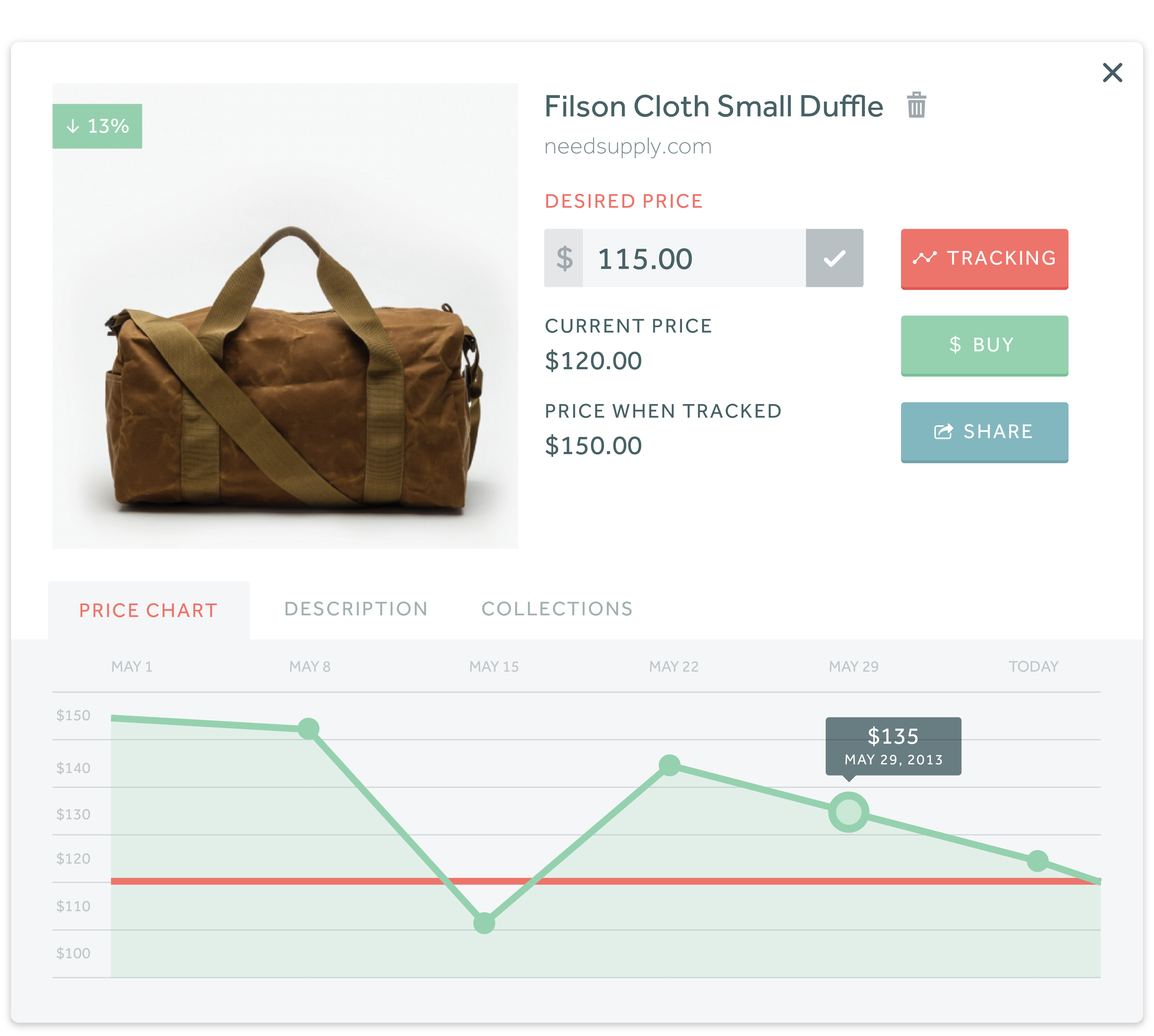
Yes, there really are a lot of start-ups working on shopping – but trust us, Nifti is one you’ll want to use.
Backed by Google Ventures, it’s a simple idea, taking advantage of the online shopping boom. Decide what you want to buy, and how much you’re willing to pay, and the Nifti app will keep checking online until the price drops – at which point you get an alert, and can go empty your wallet.
It’s incredibly simple to set up, and really useful – especially in an age where every retailer seems to have a permanent sale (yes, we’re looking at you, DFS).
“Patience pays in online shopping, but only if you’re willing to spend a ton of time checking back and forth on the things you want,” said Nifti co-founder Nathan Sharp.
“Online prices change so much more often than we first realised. We built Nifti so that it’s as easy for shoppers to know when prices change as it is for merchants to change prices.”
It’s a great little product, and we’ve heard it being talked about more and more around San Francisco – so get in early and bag yourself a bargain [Nifti]
Book An Appointment Anywhere
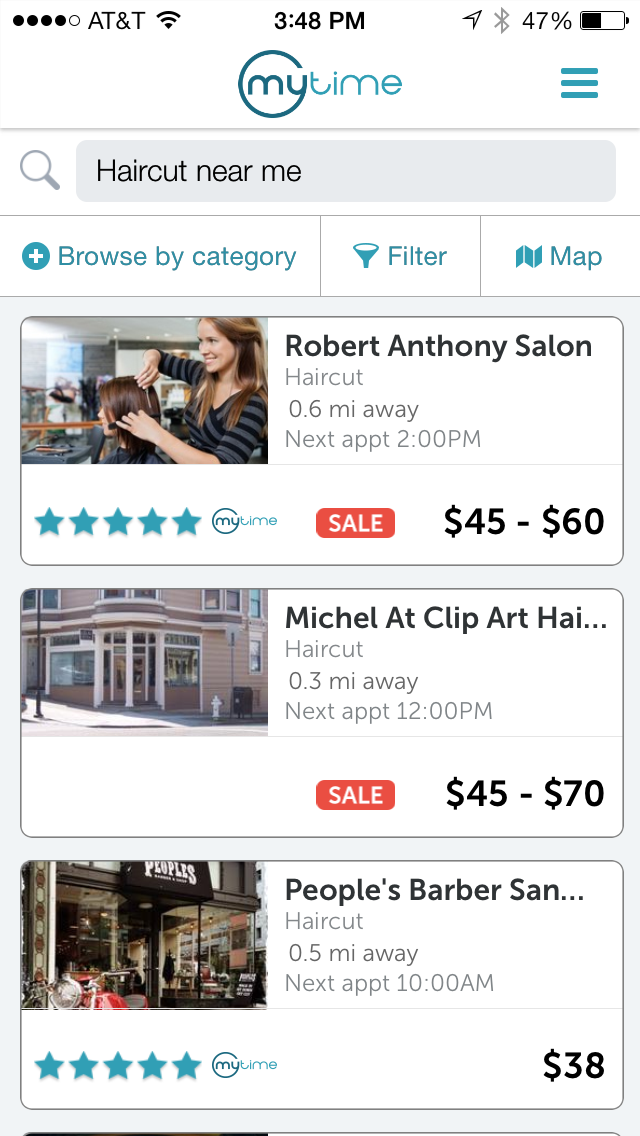
Recently winning the prestigious Launch contest for start-ups in San Francisco, MyTime is a really simple idea: a mobile app that lets you search for any kind of local business, from garage to beauty salon, and book an appointment online, without having to speak to anyone.
The product is already available in 70 US cities, and there are currently over 70 service types that can be booked through MyTime, ranging from auto detailing to haircuts to yoga classes.
Unsurprisingly, it’s got some really neat hi-tech features to take avdantage of online reviews.
Every business on MyTime has been vetted and has received high ratings from independent services such as Yelp and CitySearch. Ratings and reviews are prominently displayed on each business profile, and MyTime offers a full refund if a consumer is unhappy with any aspect of a service.
Interestingly, the app is also experimenting with dynamic pricing that may increase or decrease the price of an appointment depending on demand for that particular slot – which, if it can sign up enough retailers, could be a major selling point for for consumers and participating firms. [MyTime]
Knock Knock: Even your door is getting smart
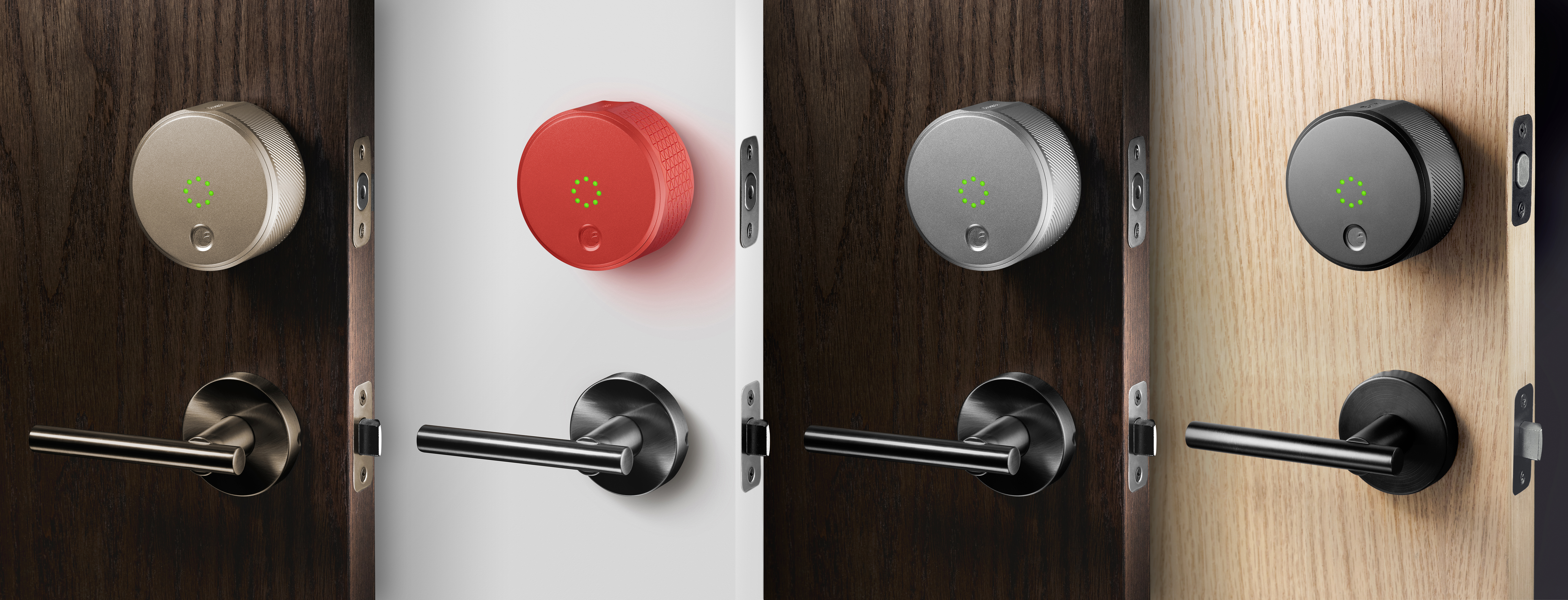
In a small room at the back of one of San Francisco’s many incubators, where start-ups band together to work on their ideas, Stuff was given an exclusive demo of the first production unit of the August lock, which promises to give your front door a mind of its own.
The $199 lock is internet controlled, meaning you can open it remotely, letting in the plumber or dog walker wherever you are. You can even give friends access to your home easily by inviting them to your lock via the August app – no more geting extra keys cut when the family descends.
Jason Johnson, the founder of the firm, showed us the lock in action. It’s very impressive, and also, surprisingly, a lovely piece of design, with a solid feel you’ll believe really will protect you.
However, Jonhnson believes the lock is just the tip of the iceberg for the smart home.
“The exciting thing is when all of the electronics in your home start talking to each other. August is the door entry system, but there are a lot of other systems in your home, and when they start talking to each other you can do some really interesting things,” he told us.
So prepare for your home to start spending its days messing about on Facebook and Twitter before too long. [August]
Keep Calm And Click On An App

While many Silicon Valley Startups are about getting things done more effectively, calm.com is very different. It aims to calm you down.
The site is the brainchild of Alex Tew, the British entrepreneur who shot to fame with the Million Dollar Homepage. And it is simple enough: it offers guided meditation sessions, giving you the option to choose what you want to achieve, and how long you’ve got to do it.
It’s very simple to use, and there’s a web-based version and an app.
It’s surprisingly good, as we’ve been using it regularly – and it’s perfect for a spot of lunchtime chilling out after a long morning at the office. [Calm.com]
Stir ‘Breathing’ Desk
Many firms claim to be able to change how we work, but Stir’s wacky Kinetic desk really could change the way you work (or sit, at least).
It builds on Silicon Valley’s obsession with odd desks. Walk into Google’s office for instance, and you’ll see everything from standing desks to treadmills, and even desks adorned exercise bikes (we kid you not – and it looks every bit as stupid as it sounds).
No desk, it appears, is too weird or wonderful. However, these people also being very smart engineers, a lot of thought has gone into the designs, leading us to believe they may have a point (if not any dignity as they pedal away) with the idea that working in different positions can make you more productive.
The Stir desk takes things one step further by converting to a standing or sitting desk at the tap of a touchscreen.
Recent research has found that switching between sitting and standing can generate an extra fifty minutes of productivity each day. At least that’s what Stir CEO and founder JP Labrosse told Stuff when we tried out the desk. Labrosse, by the way, was in the team that created the original iPod at Apple.
The Kinetic desk is not cheap at £2,500, but has a built-in touchscreen to control and track movement, and can tell users exactly how many calories they burn by standing for part of their working day.
It also has compartments containing power points and USB ports for charging phones, to keep cables hidden.
To move between sitting and standing positions, owners simply double-tap on the screen.
The desk can learn user’s preferences over time and suggest the best seating position, and can be set to ‘breathe’ – moving up and down gently to alert users that it’s time to take a break or change position. It’s a weird sensation, but does manage to get you moving about and taking more regular breaks, even if it slightly terrifying the first time your entire desk moves.
“Harvard Business Review called sitting ‘the smoking of our generation’,” said Labrosse, and many here agree with him.
However, there are also other advantages to the Stir desk – for instance, we rather liked the idea of a desk that raises itself to become a bar at the end of the day, and Labrosse promised to investigate this as a product for European offices (although we probably won’t hold our collective breath). [Stirworks]
If This Then That
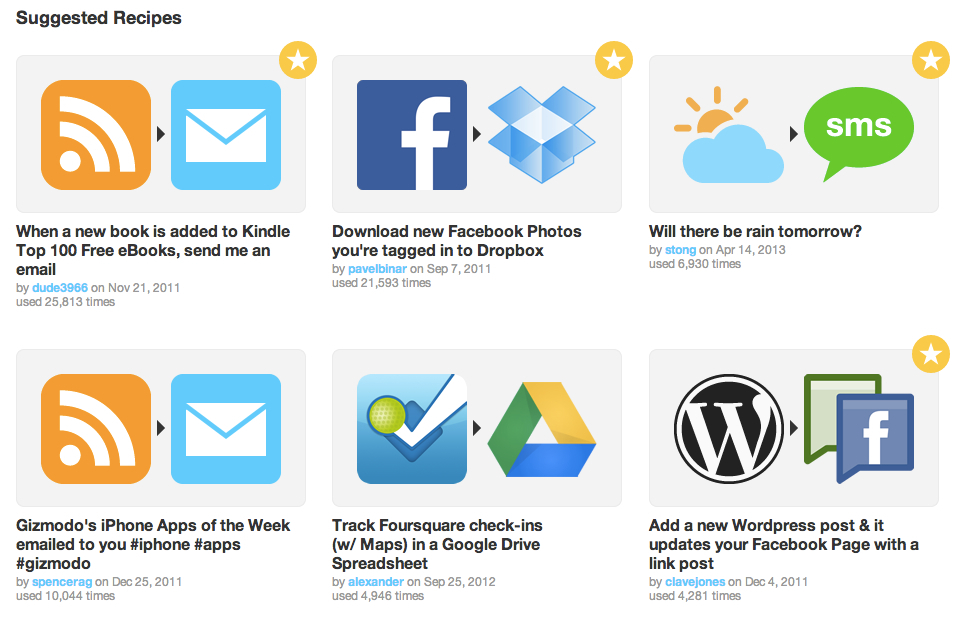
IFTTT (If This Then That) is a brilliant indicator of just how technology can change pretty much anything.
It’s a simple programming language that lets users create ‘recipes’, based on cloud services, with over 80 in the IFTTT library today.
For instance, you can set it to automatically email you every time a friend checks into FourSquare.
The possibilities are almost limitless, and in San Franciscans are even using it to automate their homes.
We met Tom Coates, Brit turned SF native who has used IFFFT to create a tweeting house.
Everything from his plants to his fridge can tweet using IFTTT recipes. For instance, Coates is tweeted by his house if the temperature reaches a certain level, advising him he might not need a coat, or even when someone turns on a light at an odd time of the day.
IFTTT is the nerd app of choice at the moment, and it’s well worth a play. While it can do wacky tricks like flashing your lightbulbs when you get an email, it’s also great for helping you run your online life – for instance, making sure your photos are synced with the right services. [IFTTT]



